Chemotherapy
How to submit an article:
- Registered users can submit any published journal article that has a unique DOI (Digital Object Identifier) name or link to Research Hub.
- For example, you can paste the full DOI link:
https://doi.org/10.1109/5.771073or just the DOI name:10.1109/5.771073into the field above and click submit. - The person who is first to submit a valid article to Research Hub will forever be credited for it, and every article submission earns you +6 Research Points.
Related Topics
Published research studies are articles that present the findings of original research that has undergone a peer-review process and has been made publicly available in scholarly journals, books or other media.
The Potential Role of Ziziphus Jujube in the Management of Chemotherapy-Induced Peripheral Neuropathy
2024 Jun 30 Journal of Tumor Science Research , Talabaki H, Salehifar E,
The review highlights the promising experimental data on Ziziphus extracts and pure active compounds in the treatment of neuropathy.
Review Article Peripheral Neuropathy Chemotherapy-Induced Peripheral Neuropathy Chemotherapy Jujube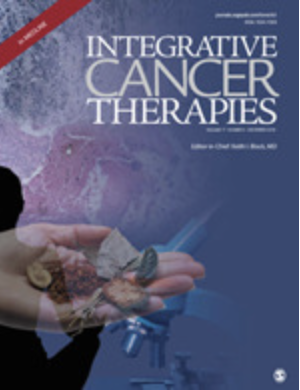
Efficacy and Safety of Compound Kushen Injection for Advanced Colorectal Cancer: A Systematic Review and Meta-Analysis of Randomized Clinical Trials with Trial Sequential Analysis
2024 Jan Integrative Cancer Therapies Wu J, Ma X, Wang X, Zhu G, Wang H, Zhang Y, et al.
Meta-Analysis Systematic Review Ku Shen Colorectal CancerAdding Compound Kushen Injection (CKI), a traditional Chinese medicine, to chemotherapy treatment enhanced treatment response and reduced side effects in advanced colorectal cancer patients.
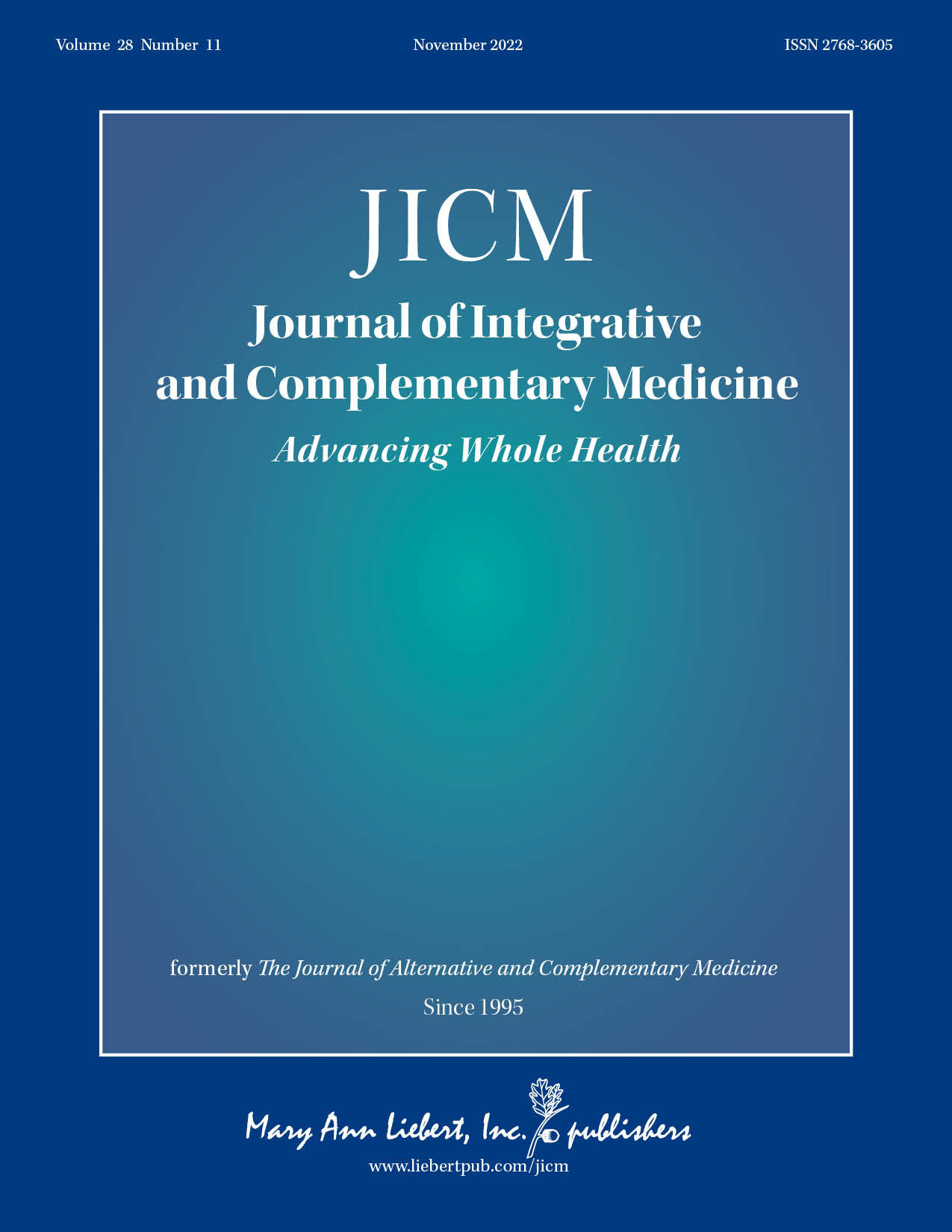
Effectiveness of Acupuncture for Relieving Chemotherapy-Induced Bone Marrow Suppression: A Systematic Review with a Meta-analysis and Trial Sequential Analysis
2023 Oct 01 Journal of Integrative and Complementary Medicine Shih YW, Wang MH, Monsen KA, Chang CW, Rias YA, Tsai HT
Acupuncture was found to significantly increase levels of hematopoietic cytokine G-CSF and stimulate the production of various blood components, including white blood cells, red blood cells, neutrophils, absolute neutrophil count, hemoglobin, platelets, and natural killer cells. Cumulative increases over time were observed for platelets and natural killer cells, suggesting that acupuncture may improve chemotherapy-induced bone marrow suppression.
Meta-Analysis Systematic Review Acupuncture Chemotherapy-Induced Bone Marrow Suppression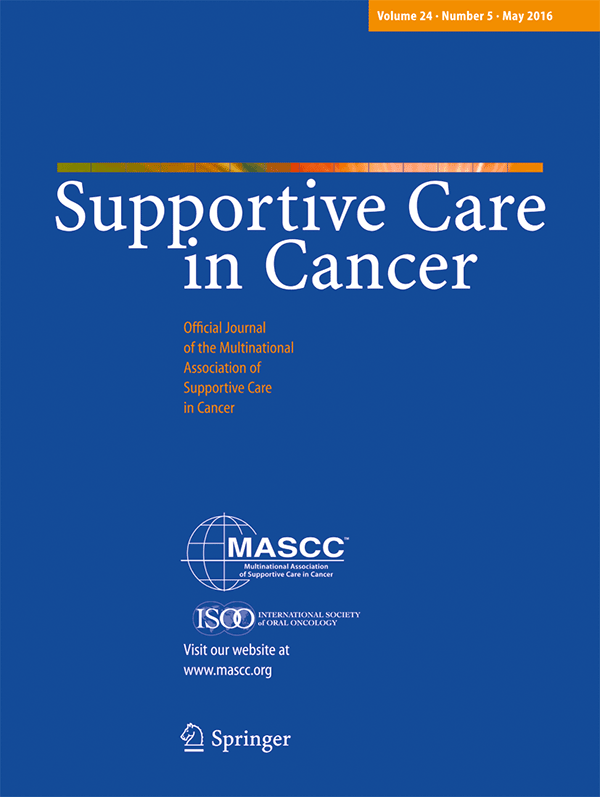
Acupuncture improves immunity and fatigue after chemotherapy in breast cancer patients by inhibiting the Leptin/AMPK signaling pathway
2023 Aug 05 Supportive Care in Cancer Li J, Fu R, Guo X, Pan Z, Xie J
The Leptin/AMPK signaling pathway is identified as a key molecular pathway affecting fatigue after chemotherapy in breast cancer patients; acupuncture treatment effectively improves post-chemotherapy fatigue, immune status, and reduces mitochondrial DNA mutations.
Experimental Study Clinical Study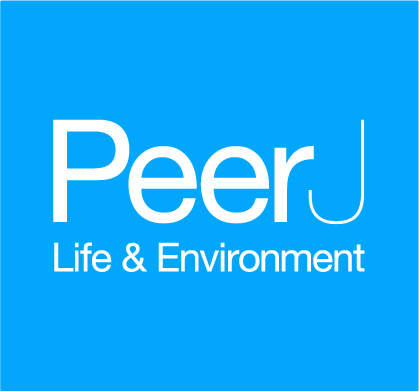
Advances on the anti-tumor mechanisms of the carotenoid Crocin
2023 Jun 29 PeerJ Bao X, Hu J, Zhao Y, Jia R, Zhang H, Xia L
Review Article Crocin Liver Cancer Saffron Breast Cancer Stomach Cancer Colorectal Cancer Cervical Cancer Anti-TumourCrocin, a compound derived from saffron, has shown considerable potential in hindering tumor growth and improving immune status, across various malignant tumors.
Research insights are moderated by the Research Hub team and offer an at-a-glance overview of interesting research findings.

2024 Integrative Cancer Therapies
Adding Compound Kushen Injection (CKI), a traditional Chinese medicine, to chemotherapy treatment enhanced treatment response and reduced side effects in advanced colorectal cancer patients.
Meta-Analysis Colorectal Cancer Ku Shen
Efficacy and Safety of Compound Kushen Injection for Advanced Colorectal Cancer: A Systematic Review and Meta-Analysis of Randomized Clinical Trials with Trial Sequential Analysis
Wu J, Ma X, Wang X, Zhu G, Wang H, Zhang Y, et al.

2023 PeerJ
Crocin, a compound derived from saffron, has shown considerable potential in hindering tumor growth and improving immune status, across various malignant tumors.
Review Article Anti-Tumour Breast Cancer Cervical Cancer Colorectal Cancer Crocin
Advances on the anti-tumor mechanisms of the carotenoid Crocin
Bao X, Hu J, Zhao Y, Jia R, Zhang H, Xia L

2022 Phytomedicine
Acupuncture has shown potential in enhancing structural nerve regeneration in Chemotherapy-induced peripheral neuropathy, leading to subjective improvements and positive neurological findings.
Clinical Study Acupuncture Chemotherapy-Induced Peripheral Neuropathy Neuropathy
Acupuncture improves chemotherapy-induced neuropathy explored by neurophysiological and clinical outcomes – The randomized, controlled, cross-over ACUCIN trial
Friedemann T, Kark E, Cao N, Klaßen M, Meyer-Hamme G, Greten JH, et al.

2022 Phytomedicine
Ellagic acid, commonly found in various plant foods, can enhance cancer treatment by boosting the effects of chemotherapy and radiotherapy while reducing their side effects.
Review Article Ellagic Acid Pomegranate Radiotherapy
Synergism of ellagic acid in combination with radiotherapy and chemotherapy for cancer treatment
Xue P, Zhang G, Zhang J, Ren L
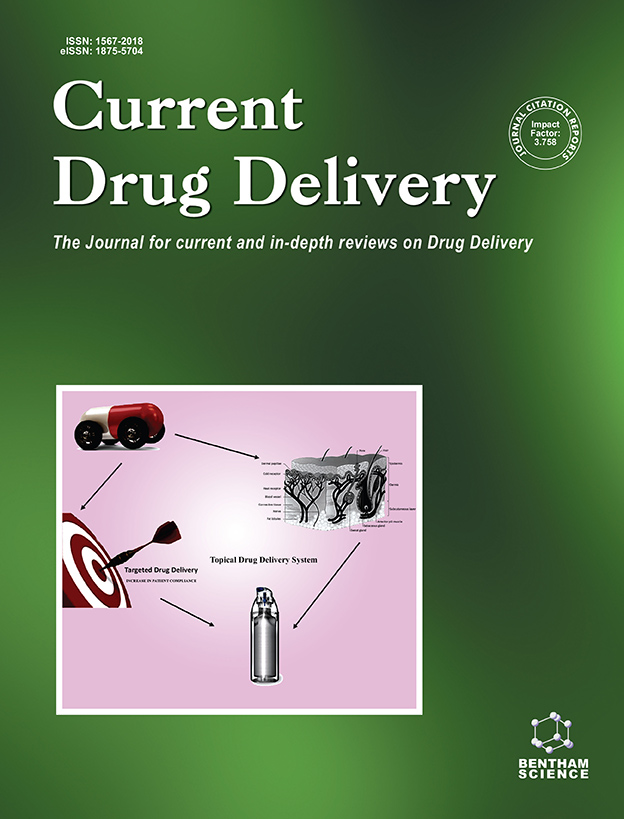
2021 Current Drug Delivery
Pomegranate juice and its bioactive components may serve as cost-effective, next-generation non-pharmacologic anticancer therapies, particularly against colorectal and prostate cancer.
Review Article Anticancer Colorectal Cancer Pomegranate Prostate Cancer
Pomegranate, its Components, and Modern Deliverable Formulations as Potential Botanicals in the Prevention and Treatment of Various Cancers
Hussein L, Gouda M, Buttar HS
Review Articles
Review articles summarise and critically evaluate the current state of research on a specific topic or field by synthesising multiple primary research studies.
The Potential Role of Ziziphus Jujube in the Management of Chemotherapy-Induced Peripheral Neuropathy
2024 Jun 30 Journal of Tumor Science Research , Talabaki H, Salehifar E,
The review highlights the promising experimental data on Ziziphus extracts and pure active compounds in the treatment of neuropathy.
Review Article Peripheral Neuropathy Chemotherapy-Induced Peripheral Neuropathy Chemotherapy Jujube
Efficacy and Safety of Compound Kushen Injection for Advanced Colorectal Cancer: A Systematic Review and Meta-Analysis of Randomized Clinical Trials with Trial Sequential Analysis
2024 Jan Integrative Cancer Therapies Wu J, Ma X, Wang X, Zhu G, Wang H, Zhang Y, et al.
Meta-Analysis Systematic Review Ku Shen Colorectal CancerAdding Compound Kushen Injection (CKI), a traditional Chinese medicine, to chemotherapy treatment enhanced treatment response and reduced side effects in advanced colorectal cancer patients.

Effectiveness of Acupuncture for Relieving Chemotherapy-Induced Bone Marrow Suppression: A Systematic Review with a Meta-analysis and Trial Sequential Analysis
2023 Oct 01 Journal of Integrative and Complementary Medicine Shih YW, Wang MH, Monsen KA, Chang CW, Rias YA, Tsai HT
Acupuncture was found to significantly increase levels of hematopoietic cytokine G-CSF and stimulate the production of various blood components, including white blood cells, red blood cells, neutrophils, absolute neutrophil count, hemoglobin, platelets, and natural killer cells. Cumulative increases over time were observed for platelets and natural killer cells, suggesting that acupuncture may improve chemotherapy-induced bone marrow suppression.
Meta-Analysis Systematic Review Acupuncture Chemotherapy-Induced Bone Marrow Suppression
Advances on the anti-tumor mechanisms of the carotenoid Crocin
2023 Jun 29 PeerJ Bao X, Hu J, Zhao Y, Jia R, Zhang H, Xia L
Review Article Crocin Liver Cancer Saffron Breast Cancer Stomach Cancer Colorectal Cancer Cervical Cancer Anti-TumourCrocin, a compound derived from saffron, has shown considerable potential in hindering tumor growth and improving immune status, across various malignant tumors.

Acupuncture for the prevention of chemotherapy‐induced nausea and vomiting in cancer patients: A systematic review and meta‐analysis
2023 May 24 Cancer Medicine Yan Y, López‐Alcalde J, Zhang L, Siebenhüner AR, Witt CM, Barth J
Acupuncture, when added to usual care, may increase the complete control of chemotherapy-induced acute vomiting and delayed vomiting compared to usual care alone. However, the certainty of evidence was generally low or very low, and well-designed randomized controlled trials with larger sample sizes and standardized treatment regimens are needed to draw more definitive conclusions.
Systematic Review Chemotherapy-Induced Nausea and Vomiting AcupunctureClinical Trials
Clinical trials are research studies that involve people and are conducted to evaluate the safety and efficacy of new treatments or interventions, such as drugs, medical devices, or behavioural therapies.

Acupuncture for chemotherapy-associated insomnia in breast cancer patients: an assessor-participant blinded, randomized, sham-controlled trial
2023 Apr 26 Breast Cancer Research Zhang J, Qin Z, So TH, Chang TY, Yang S, Chen H, et al.
The active acupuncture regimen, combining needling into body acupoints and acupressure on auricular acupoints, was not superior to sham control in reducing the Insomnia Severity Index (ISI) score from baseline to 6 weeks. However, it produced short-term treatment and long-term follow-up better outcomes in improving sleep onset latency, total sleep time, sleep efficiency, anxiety, depression, and quality of life. Participants in the active acupuncture group had a higher cessation rate of sleeping medications than the sham control, indicating that acupuncture could be an effective option for managing chemotherapy-associated insomnia and serve as a tapering approach to reduce the use of sleeping medications in breast cancer patients.
Randomised Controlled Trial Breast Cancer Chemotherapy-Associated Insomnia Acupuncture
Acupuncture improves chemotherapy-induced neuropathy explored by neurophysiological and clinical outcomes – The randomized, controlled, cross-over ACUCIN trial
2022 Sep Phytomedicine Friedemann T, Kark E, Cao N, Klaßen M, Meyer-Hamme G, Greten JH, et al.
Clinical Study Randomised Controlled Trial Chemotherapy Acupuncture Neuropathy Chemotherapy-Induced Peripheral NeuropathyAcupuncture has shown potential in enhancing structural nerve regeneration in Chemotherapy-induced peripheral neuropathy, leading to subjective improvements and positive neurological findings.
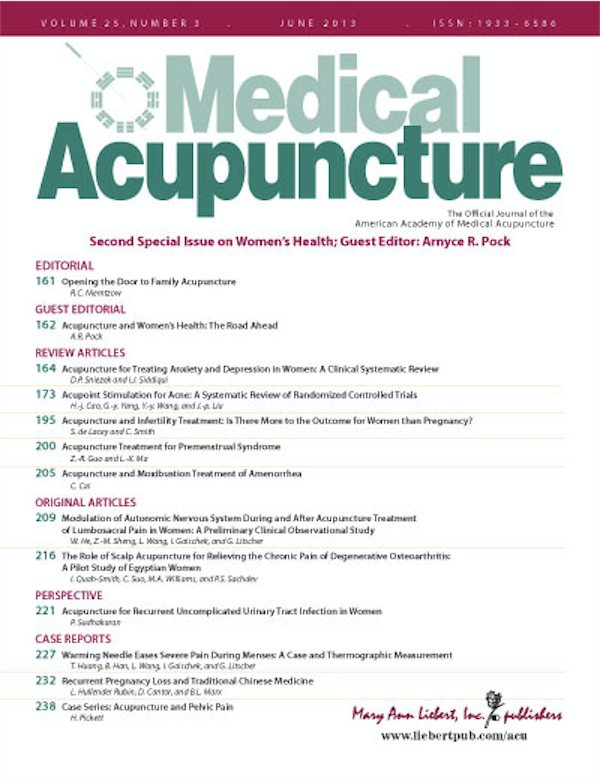
Efficacy of Press Needle at PC6 Neiguan and ST36 Zusanli as Adjuvant Therapy in Reducing Symptoms of Chemotherapy-Induced Nausea and Vomiting in Pediatric Cancer Patients Undergoing Chemotherapy
2022 Apr 01 Medical Acupuncture Bintoro DA, Nareswari I, Andriastuti M
Press needle acupuncture is able to reduce the Rhodes index of nausea, vomiting, and retching (RINVR) score and can be applied to pediatric patients because of its minimal side effects, but further research is needed to determine the appropriate treatment time.
Randomised Controlled Trial Children's Health Acupuncture Chemotherapy-Induced Nausea and Vomiting Vomiting Nausea
Electroacupuncture Plus Auricular Acupressure for Chemotherapy-Associated Insomnia in Breast Cancer Patients: A Pilot Randomized Controlled Trial
2021 Jan Integrative Cancer Therapies Zhang J, Qin Z, So TH, Chen H, Lam WL, Yam LL, et al.
Acupuncture demonstrated significant improvements in the Insomnia Severity Index (ISI) scores, total sleep time, Pittsburgh Sleep Quality Index (PSQI) scores, Hospital Anxiety and Depression Scale (HADS) depression scores, and Functional Assessment of Cancer Therapy-Breast Cancer (FACT-B) scores compared to the wait-list control group. The study suggests that acupuncture is safe, feasible, and effective for chemotherapy-associated insomnia in breast cancer patients, warranting further confirmation through a larger sample size randomized clinical trial.
Randomised Controlled Trial
ATAS Acupuncture Reduces Chemotherapy Induced Fatigue in Breast Cancer Through Regulating ADROA1 Expression: A Randomized Sham-Controlled Pilot Trial
2020 Nov OncoTargets and Therapy Li YF, Liu DQ, Nie JY, Chen DD, Yan M, Zuo Z, et al.
ATAS acupuncture was shown to be effective in improving symptoms, including fatigue, anxiety, and insomnia throughout the chemotherapy process, with the ATAS acupuncture group exhibiting decreased VAS-F scores and lower MFI-20 scores compared to the sham and non-acupuncture groups. The mechanism of ATAS acupuncture's fatigue reduction may be associated with the ADROA1 gene, regulating the cGMP/PKG pathway.
Randomised Controlled TrialStudy Protocols
Published study protocols are detailed plans that outline the objectives, methodology, statistical analyses, and organisation of a research study that have been made publicly available for others to review and use as a reference.
Presentation Slides

Meta-Analysis
Adding Compound Kushen Injection (CKI), a traditional Chinese medicine, to chemotherapy treatment enhanced treatment response and reduced side effects in advanced colorectal cancer patients.
Wu J, Ma X, Wang X, Zhu G, Wang H, Zhang Y, Li J

Review Article
Crocin, a compound derived from saffron, has shown considerable potential in hindering tumor growth and improving immune status, across various malignant tumors.
Bao X, Hu J, Zhao Y, Jia R, Zhang H, Xia L

Clinical Study
Acupuncture has shown potential in enhancing structural nerve regeneration in Chemotherapy-induced peripheral neuropathy, leading to subjective improvements and positive neurological findings.
Friedemann T, Kark E, Cao N, Klaßen M, Meyer-Hamme G, Greten JH, Rostock M, Buhlmann E, Zhao A, Schröder S

Review Article
Ellagic acid, commonly found in various plant foods, can enhance cancer treatment by boosting the effects of chemotherapy and radiotherapy while reducing their side effects.
Xue P, Zhang G, Zhang J, Ren L

Review Article
Pomegranate juice and its bioactive components may serve as cost-effective, next-generation non-pharmacologic anticancer therapies, particularly against colorectal and prostate cancer.
Hussein L, Gouda M, Buttar HS
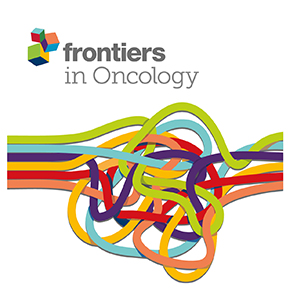
Systematic Review
ST36 acupoint injections with dexamethasone outperforms conventional western medicine in treating chemotherapy-induced myelosuppression, significantly improving clinical efficacy and recovery.
Chen J, Lin Z, Ding J
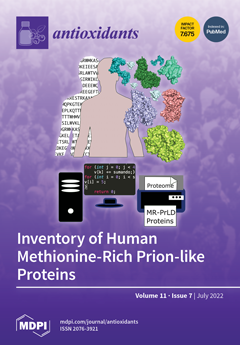
Experimental Study
Pomegranate juice extract (PPJE) appears to reduce chemotherapy-induced skin side effects by inhibiting inflammation and promoting wound repair on the skin.
Rapa SF, Magliocca G, Pepe G, Amodio G, Autore G, Campiglia P, Marzocco S
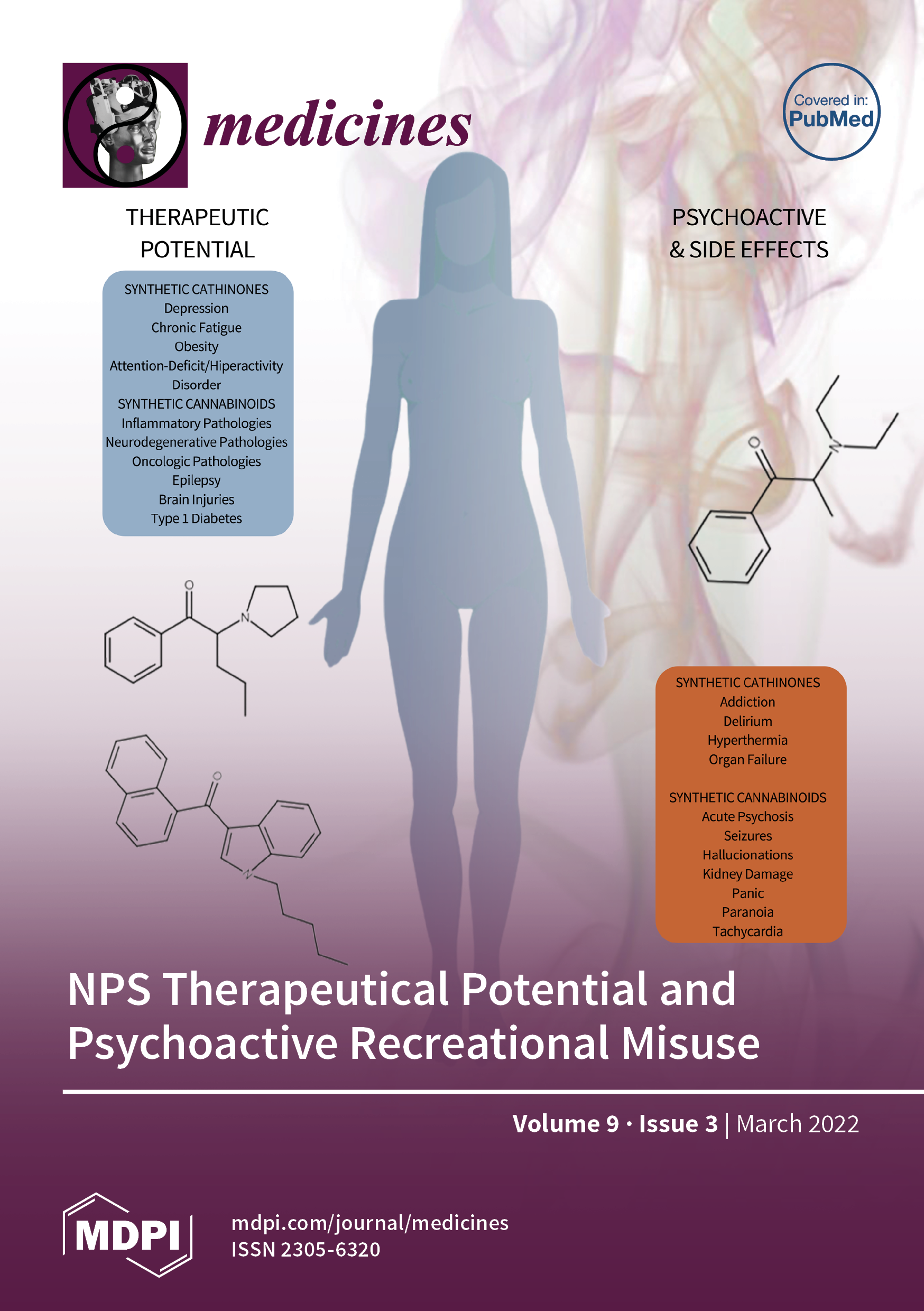
Experimental Study
Pomegranate juice increases the effectiveness of lung cancer treatment with the low dose chemotherapy drug Cisplatin, while simultaneously reducing its toxicity on normal cells.
Nasser M, Damaj Z, Hijazi A, Merah O, Al-Khatib B, Hijazi N, Trabolsi C, Damaj R, Nasser M

Systematic Review
Acupuncture has been shown to be more effective than vitamin B treatment in terms of clinical efficacy rate for chemotherapy induced peripheral neuropathy.
Hwang MS, Lee HY, Choi TY, et al.
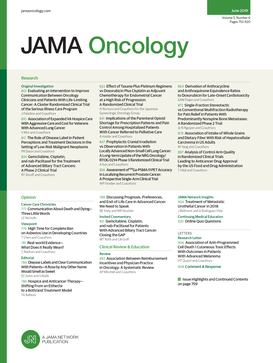
Randomised Controlled Trial
Compared with usual care, acupuncture resulted in significant improvement in chemotherapy-induced peripheral neuropathy symptoms.
Bao T, Patil S, Chen C, et al.

Systematic Review
Acupuncture has therapeutic potential in management of cancer-related fatigue for cancer survivors.
Jang A, Brown C, Lamoury G, Morgia M, Boyle F, Marr I, Clarke S, Back M, Oh B

Review Article
Prunus mume fruit extracts display hepatoprotective, anti-inflammatory, antioxidative, antibacterial effects, and show promise for treating cancer and alleviating chemotherapy side-effects.
Bailly C
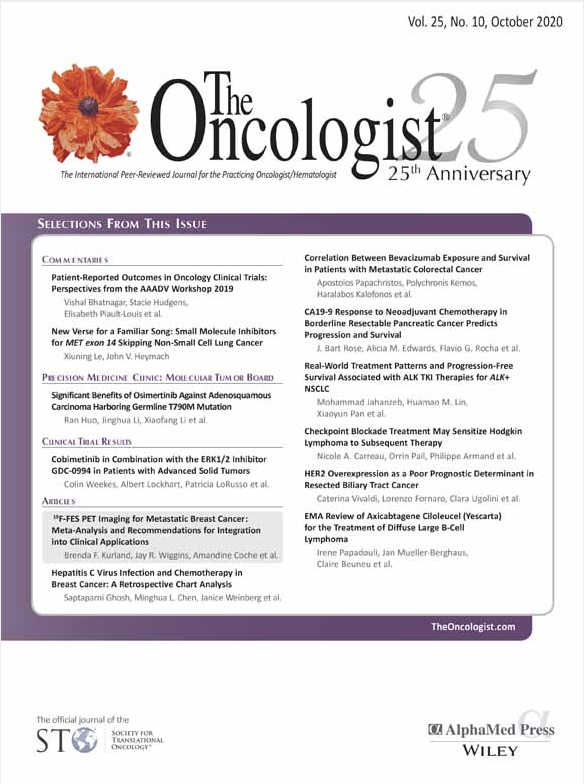
Randomised Controlled Trial
Acupuncture treatment significantly improves neuropathic symptoms in women suffering from chemotherapy-induced peripheral neuropathy after breast cancer therapy.
Lu W, Giobbie-Hurder A, Freedman RA, Shin IH, Lin NU, Partridge AH, Rosenthal DS, Ligibel JA

Experimental Study
Lemongrass extract has potential as a supplement to chemotherapy, reducing colon cancer growth, enhancing treatment effectiveness, and mitigating side effects like weight loss.
Ruvinov I, Nguyen C, Scaria B, Vegh C, Zaitoon O, Baskaran K, Mehaidli A, Nunes M, Pandey S

Review Article
(-)-Epigallocatechingallate (EGCG), a natural product, has potent anti-proliferation, anti-metastasis, and pro-apoptosis effects on cervical cancer cells, enhancing the effects of conventional drugs.
Wang YQ, Lu JL, Liang YR, Li QS
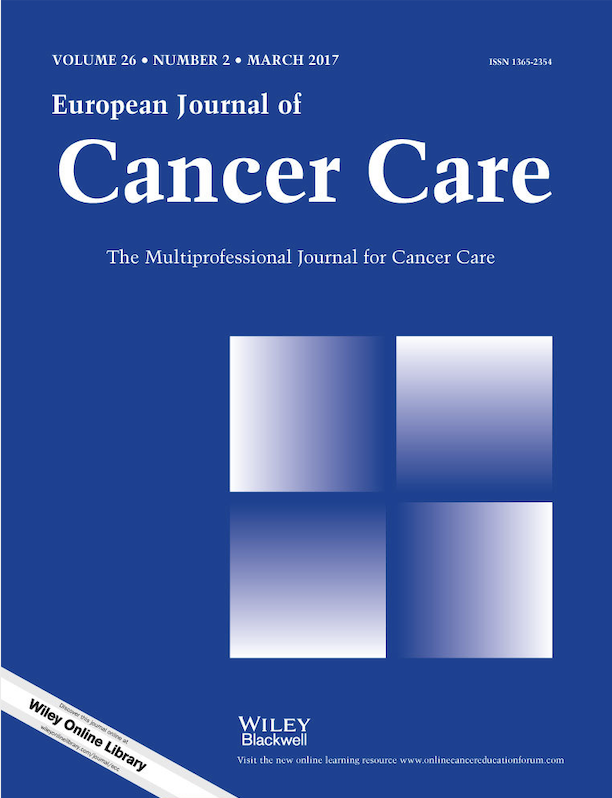
Systematic Review
Acupuncture can be adopted as part of a multimodal approach for reducing cancer-related pain.
Chiu HY, Hsieh YJ, Tsai PS.
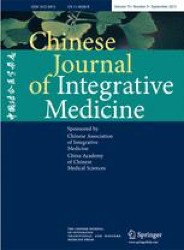
Systematic Review
Acupuncture shows promising evidence in cancer palliative care, particularly in reducing therapy-induced side effects and cancer pain.
Lian, WL., Pan, Mq., Zhou, Dh. & Zhang, ZJ.
Executive Summary
Write an executive summary in the form of a blog article on the topic of "Research into Chinese medicine treatment for Chemotherapy" summarising the research below and using language that can be easily understood by patients and avoiding medical jargon using a professional and caring tone of voice.
Write an executive summary in the form of a blog article on the topic of "Researched Chinese medicine treatments for Chemotherapy" summarising the research below in an objective and easy to understand way, and using language that can be easily understood by patients. Group the article into Chinese medicine treatments first, followed by nutrition and other treatments. Avoid using medical jargon and use a professional and caring tone of voice.
Write me a concise but easy to understand executive summary on the topic of "Chinese medicine treatments for Chemotherapy" based on the following research that I will give you. Your summary should be 2 paragraphs long in Australian English spelling and include references to the studies.
A Meta-Analysis published in 2024 in the journal Integrative Cancer Therapies found that Adding Compound Kushen Injection (CKI), a traditional Chinese medicine, to chemotherapy treatment enhanced treatment response and reduced side effects in advanced colorectal cancer patients. This study systematically collected data from a myriad of sources including, but not limited to, PubMed, the Cochrane Library, and ClinicalTrials.gov up to April 20, 2024. An assessment tool, ROB2, was used to measure the quality of the included trials, while data analysis was done using Stata 16. Publication bias was evaluated with the funnel plot and Egger's test. To calculate the final required sample size in this meta-analysis and verify whether the results presented a stable conclusion, trial sequential analysis was used. The data collected from these sixteen trials, consisting of 1378 patients showcased that when compared to chemotherapy alone, the combination of CKI and chemotherapy resulted in improved response rates and enhancement of the patient's performance status. Furthermore, this combination therapy was associated with fewer adverse reactions like leukopenia, thrombocytopenia, gastrointestinal reactions, and liver damage. Patients also exhibited high CD4 ratios and comparatively low CD8 T cell ratios. A subgroup analysis further demonstrated that the response rates improved significantly when CKI was combined with specific chemotherapy regimens. Overall, this data strongly suggests that the addition of CKI to chemotherapy provided statistically significant and clinically relevant improvements in treatment response rates, patient wellbeing, reduction in adverse reactions, and enhanced immune function.
A Review Article published in 2023 in the journal PeerJ found that Crocin, a compound derived from saffron, has shown considerable potential in hindering tumor growth and improving immune status, across various malignant tumors. The methodology for the study involved an in-depth review of modern pharmacological studies that have analyzed the therapeutic effects of crocin, a natural compound that can be extracted from saffron. Various anti-tumor effects were assessed including the induction of tumor cell death (apoptosis), restrictions on tumor cell proliferation, and potential barriers to invasion and metastasis of these cells. The potential for enhancement of sensitivity to chemotherapy and improvement of immune status were also examined. Following the review, the study revealed that crocin has significant anti-tumor properties. It showed that this natural compound can induce apoptosis in tumor cells, inhibit their expansion and progression, and even prevent their invasiveness and metastasis. Furthermore, crocin demonstrated the potential to enhance the body’s responsiveness to chemotherapy and help boost the immune system. These effects were observed across a range of different malignant tumors, including stomach, liver, cervical, breast, and colorectal cancers.
A Clinical Study published in 2022 in the journal Phytomedicine found that Acupuncture has shown potential in enhancing structural nerve regeneration in Chemotherapy-induced peripheral neuropathy, leading to subjective improvements and positive neurological findings. This research was conducted at the HanseMerkur Center for TCM at the University Medical Center, Hamburg-Eppendorf. Sixty patients who had been diagnosed with Chemotherapy-induced peripheral neuropathy underwent acupuncture treatment. Patients were selected based on physical examinations, subjective and quantitative evaluations conducted using nerve conduction studies. They were then randomly divided into two groups. The first group received a ten-week acupuncture treatment while the latter was put on a waiting list. After fourteen weeks, evaluations were carried out on both groups. The second group then received the acupuncture treatment while group one was put on the waiting list. Both groups were subjected to another evaluation after 28 weeks. The results showed noticeable improvements in sural sensory nerve amplitude and sural nerve conduction velocity among patients who received acupuncture treatment. This can be seen in the subjective improvements reported by the patients in the form of reduced burning pain, cramps, numbness, frequency of symptoms and improved gait. Significantly positive findings from the physical examination, including blind walking, heel-to-toe walking, and distal pallhypesthesia further bolster the potential benefits of acupuncture treatment in managing Chemotherapy-induced peripheral neuropathy.
A Review Article published in 2022 in the journal Phytomedicine found that Ellagic acid, commonly found in various plant foods, can enhance cancer treatment by boosting the effects of chemotherapy and radiotherapy while reducing their side effects. The presented review compiled in vitro and in vivo experimental evidence of the synergistic effect of Ellagic acid (EA) in cancer therapy from multiple databases including PubMed, Web of Science, and Google Scholar. The focus was on the use of EA in conjunction with conservative treatment methods such as chemotherapy and radiotherapy. The results suggest that EA, a polyphenolic compound found in various plant foods, has the potential to enhance the effectiveness of these treatment methods. It was found to improve treatment outcomes when combined with a low dosage of therapeutic drugs or optimized radiation levels. Additionally, EA appears to have a preventative effect against the adverse reactions normally associated with chemotherapy, possibly due to its antioxidant and anti-inflammatory properties. This makes it a promising candidate as a drug adjuvant in cancer treatment.
A Review Article published in 2021 in the journal Current Drug Delivery found that Pomegranate juice and its bioactive components may serve as cost-effective, next-generation non-pharmacologic anticancer therapies, particularly against colorectal and prostate cancer. Methodology: The present review was undertaken to provide current information on the impact of pomegranate juice and its bioactive elements, critically focusing on the effects on the most common six types of cancer. The inherent polyphenolic compounds of pomegranate, such as ellagitannins and punicalagin, are known to have substantial antioxidant capability which has been evaluated through in vitro and in vivo studies. These compounds' ability to avert free radicals and design metal-chelates in biological tissues have offered a useful basis to extrapolate their impact on various types of cancers. Discussion of Results: The findings indicate that the antioxidant and anti-inflammatory properties of pomegranate possess significant antimutagenic and antiproliferative activities, which proved to be beneficial in modifying gene expression, moderating cellular mechanisms, and limiting the metastasis of cancerous cells. In addition to this, there are reports from a few clinical trials showing the potential of pomegranate ingredients to prevent and treat cancer, notably colorectal and prostate cancer. It’s been noticed that the pomegranate driven therapies may prove to be a cost-effective alternative to costly chemotherapies which often carry drug resistances and severe side effects. Such therapies could offer lesser side effects, making them potential candidates for future non-pharmacologic anticancer treatments.
A Systematic Review published in 2021 in the journal Frontiers in Oncology found that ST36 acupoint injections with dexamethasone outperforms conventional western medicine in treating chemotherapy-induced myelosuppression, significantly improving clinical efficacy and recovery. The study executed a systematic evaluation of the efficacy of ST36 acupoint injection with dexamethasone in treating chemotherapy-induced myelosuppression. A total of 17 randomized controlled trials from eight different databases were extracted for this meta-analysis. A detailed examination and analysis of various data gathered were performed using the Cochrane Collaboration tool for bias, Excel 2010 for creating an information extraction database, and RevMan 5.3.0 software for analyzing test data. The quality of evidence was graded using GRADE profiler 3.6 software. The results indicated that compared to conventional western medicine, ST36 acupoint injection with dexamethasone vastly improved the clinical aggregate effective rate. Notably, it increased the white blood cell count and hemoglobin levels in patients, further enhancing their Karnofsky performance status. The treatment also shortened the recovery time of myelosuppression. However, there were no significant differences observed in platelet elevation between the ST36 acupoint injection with dexamethasone and conventional western medicine.
A Experimental Study published in 2021 in the journal Antioxidants found that Pomegranate juice extract (PPJE) appears to reduce chemotherapy-induced skin side effects by inhibiting inflammation and promoting wound repair on the skin. In this study, the impact of pomegranate (L.) juice extract (PPJE) on skin cells treated with 5-Fluorouracil (5-FU), an antineoplastic agent, was evaluated. This involved assessing the extract's ability to inhibit the release of reactive oxygen species and enhance the cellular antioxidant response of the treated skin cells. Specific attention was given to observe the overexpression of cytoprotective enzymes such as heme oxygenase-1 and NAD(P)H dehydrogenase [quinone] 1 after the introduction of PPJE. The results indicated that PPJE indeed blocked the formation of nitrotyrosine and reduced the release of cytokines, therefore indicating a dampened inflammatory response. Furthermore, it was revealed that the extract could inhibit the nuclear translocation of p65-NF-κB, a key regulator of inflammation. The study also pointed out that PPJE could curb apoptosis in cells treated with 5-FU, whilst fostering wound repair. The overall findings suggest that PPJE holds potential as a supplementary agent for managing oxidative and inflammatory issues associated with chemotherapy-induced skin side effects.
A Experimental Study published in 2020 in the journal Medicines found that Pomegranate juice increases the effectiveness of lung cancer treatment with the low dose chemotherapy drug Cisplatin, while simultaneously reducing its toxicity on normal cells. The study performed classical tests for initial phytochemical screening of the pomegranate extract, measuring both total phenolic and sugar contents. The antioxidant activity of the pomegranate juice was then evaluated using an accepted method for determining its ability to eliminate harmful oxidative molecules. The viability of lung cancer cells and normal blood cells, when treated with pomegranate and the Cisplatin, was gauged using a neutral red assay, a test that determines cell health by noting their capacity to incorporate neutral red dye. In the discussion of results, the findings highlighted the high density of antioxidant compounds (such as flavonoids, alkaloids, etc) in the pomegranate juice. The juice had strong oxidative molecule scavenging activity, indicating potential as an antioxidant treatment. Most notably, the combination of pomegranate juice with a low dose of Cisplatin significantly reduced the viability of lung cancer cells while enhancing that of normal blood cells when compared to treatment with just Cisplatin or pomegranate juice.
A Systematic Review published in 2020 in the journal Medicine found that Acupuncture has been shown to be more effective than vitamin B treatment in terms of clinical efficacy rate for chemotherapy induced peripheral neuropathy. Aside from 1 study using sham-EA as a control group, all 12 studies included acupuncture versus pharmacological treatments. The results showed that acupuncture could show a superior clinical efficacy than vitamin B therapy. However, the methodological quality of the involved studies was generally low.
A Randomised Controlled Trial published in 2020 in the journal JAMA Oncology found that Compared with usual care, acupuncture resulted in significant improvement in chemotherapy-induced peripheral neuropathy symptoms. We found therapeutic benefit of real acupuncture for neuropathic pain that is consistent with previous pilot acupuncture CIPN trials. Distinctively, our study is the first, to our knowledge, to incorporate a sham treatment and a nontreatment control to evaluate the efficacy of acupuncture for CIPN. The addition of a sham acupuncture control in an acupuncture clinical trial is difficult owing to the challenge of incorporating a truly inert placebo. In addition, a sham control limits the ability of a small effect size to elucidate a true difference between real and sham acupuncture. Not only did our study demonstrate the feasibility of conducting a sham-controlled acupuncture trial, it generated sufficient pilot data to inform a definitive sham-controlled efficacy trial. Our trial is limited by its small sample size, single center, and short-term follow-up.
A Systematic Review published in 2020 in the journal Integrative Cancer Therapies found that Acupuncture has therapeutic potential in management of cancer-related fatigue for cancer survivors. Given that CRF is a debilitating symptom among cancer survivors that has proven complex to manage, it is important to explore a wide range of treatment options. The findings of this systematic review and meta-analysis suggest that acupuncture has clinical applications in the management of CRF in conjunction with standard care. Investigating the physiological mechanisms underlying the effects of acupuncture on CRF with biomarkers including cytokines will provide important insights into future clinical applications. Acupuncture for cancer survivors with fatigue, particularly those receiving chemotherapy and radiation therapy that induce fatigue, can have a beneficial effect on fatigue and overall quality of life, when used as an adjunctive intervention to conventional cancer care. Therefore, it is recommended that acupuncture be incorporated into guidelines for the management of CRF in order to improve patient care.
A Review Article published in 2020 in the journal Journal of Ethnopharmacology found that Prunus mume fruit extracts display hepatoprotective, anti-inflammatory, antioxidative, antibacterial effects, and show promise for treating cancer and alleviating chemotherapy side-effects. The authors conducted an extensive database retrieval via SciFinder, PubMed, and various other resources using relevant keywords such as "Prunus mume", "Chinese plum", "Japanese apricot", and "cancer". They also consulted relevant textbooks, patents, reviews, and digital documents (in English). The purpose was to analyze the anticancer activities of the P. mume extracts and their potential use to prevent or treat cancers. They also aimed to review the use of the P. mume extracts to alleviate the side effects of chemotherapy, notably drug-induced gastrointestinal toxicities. In addition to showing hepatoprotective, anti-inflammatory, antioxidative, and antibacterial effects, the P. mume extracts were found to exhibit anticancer properties. Specifically, the extracts inhibited proliferation and induced apoptotic death of multiple types of cancer cells from both solid and hematological tumors. Furthermore, the extracts were found useful in treating mucositis and other gastrointestinal damages induced by anticancer drugs. The scientists profiled key natural products found in the extracts including ursolic acid and oleanic acid. However, they call for more robust evidence of anticancer activity in humans.
A Randomised Controlled Trial published in 2019 in the journal The Oncologist found that Acupuncture treatment significantly improves neuropathic symptoms in women suffering from chemotherapy-induced peripheral neuropathy after breast cancer therapy. In this randomized pilot trial, women with stage I-III breast cancer with grade 1 or higher chemotherapy-induced peripheral neuropathy post adjuvant chemotherapy were tested. Patients were split evenly into two groups: an immediate acupuncture group and a control group. Those in the immediate acupuncture arm underwent 18 acupuncture sessions over 8 weeks before the treatment was halted. Conversely, the control group received the usual care over eight weeks before beginning nine acupuncture sessions across the same time span. Different parameters such as sensory scores, neurotoxicity, and pain severity were evaluated at the start, then at 4, 8, and 16 weeks post enrollment. The results, which excluded any statistical references, showed a notable improvement in the immediate acupuncture group in terms of neuropathic symptoms, including sensory scores, neurotoxicity summary score, and pain severity score when observed at the end of eight weeks. No negative side effects were observed during the entire period. This indicates acupuncture as a potential therapeutic option for breast cancer patients suffering from chemotherapy-induced peripheral neuropathy.
A Experimental Study published in 2019 in the journal Integrative Cancer Therapies found that Lemongrass extract has potential as a supplement to chemotherapy, reducing colon cancer growth, enhancing treatment effectiveness, and mitigating side effects like weight loss. The study utilized both human colorectal cancer models and APC transgenic mice to assess the effectiveness and potential preventive properties of lemongrass extract. The researchers initially tested the impact of the extract in vitro, observing its influence on cancer cells over time and in relation to does. Moreover, they analyzed the extract's effects when orally administered to mice with colon cancer xenografts. This was done to understand its effectiveness in handling colon cancer and potential negative impacts on healthy cells. The latter part of the study focused on the interaction of lemongrass extract with two common chemotherapy treatments used for colon cancer, FOLFOX and Taxol. This was done not only to understand how the extract might influence the chemotherapy's results but also to assess if it could ameliorate any side effects of these potent treatments. It was found that ethanolic lemongrass extract demonstrated a potent anticancer effect by inducing apoptosis (cell death) in colon cancer cells without negatively impacting the healthy cells. This effect was noticed to be both time and dose-dependent. Moreover, when fed to mice with colon cancer xenografts, the extract not only inhibited cancer growth but was well tolerated by the animals. Significant implications were evidenced when the extract was given alongside FOLFOX. Not only did it enhance the effectiveness of this chemotherapy treatment, but it also actively countered weight loss, one of the common side effects. Finally, the lemongrass extract effectively reduced intestinal tumors in APC transgenic mice, suggesting its potential role for preventative measures against colon cancer. Based on these results, the researchers concluded that lemongrass extract may be a promising supplemental treatment for colorectal cancer in the future.
A Review Article published in 2018 in the journal Molecules found that (-)-Epigallocatechingallate (EGCG), a natural product, has potent anti-proliferation, anti-metastasis, and pro-apoptosis effects on cervical cancer cells, enhancing the effects of conventional drugs. This research paper discusses the potential of (-)-epigallocatechingallate (EGCG), a naturally occurring compound, as an anti-cancer treatment for cervical cancer. Traditional treatment methods involve the use of chemotherapy, but these have high toxicity and numerous side effects. The inherent low toxicity of EGCG makes it a promising alternative for treatment. The paper reviews the mechanisms by which EGCG inhibits the growth and spread of cervical cancer cells and promotes their apoptosis. Furthermore, the synergistic pharmaceutical effects of EGCG with conventional agents including cisplatin and bleomycin, have been evaluated. For the discussion of results, the research shows significant evidence of EGCG's abilities to inhibit growth and spread of cervical cancer cells as well as initiate programmed cell death, or apoptosis. The compound's synergistic properties when paired with conventional chemotherapy drugs such as cisplatin and bleomycin, further enhance its potential as a treatment method. The review also explains the underlying processes by which EGCG performs these roles, providing a comprehensive view on its potential applications in cervical cancer treatment.
A Systematic Review published in 2017 in the journal European Journal of Cancer Care found that Acupuncture can be adopted as part of a multimodal approach for reducing cancer-related pain. A total of 29 RCTs yielding 36 effect sizes were included. The overall effect of acupuncture on cancer-related pain was -0.45. The subanalysis indicated that acupuncture relieved malignancy-related and surgery-induced pain but not CT- or RT-induced and HT-induced pain. Acupuncture is effective in relieving cancer-related pain, particularly malignancy-related and surgery-induced pain.
A Systematic Review published in 2013 in the journal Chinese Journal of Integrative Medicine found that Acupuncture shows promising evidence in cancer palliative care, particularly in reducing therapy-induced side effects and cancer pain. The study examined data from 33 randomized clinical trials that investigated the effectiveness of acupuncture in palliative care for cancer patients. The data were collected from seven different databases dating up to December 2010. The extraction and validation process was overseen by two independent reviewers who also assessed the trials using the Jadad scale. The trials evaluated revealed diverse impacts of acupuncture on numerous cancer-related conditions. These include effects on side effects arising from chemotherapy or radiotherapy, cancer pain, post-operative urinary retention and other aspects of quality of life. The results showed promising potential for acupuncture being beneficial in palliative care, particularly in the reduction of chemotherapy or radiotherapy-induced side effects, and pain related to cancer.
Moderation Tools
Topic
Sign In
Users not signed in are limited to viewing the 5 most recent items of content.